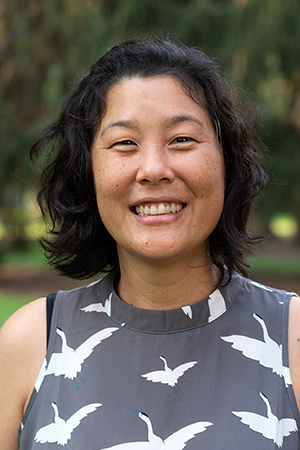Faculty Profile
Helene Lee
Associate Professor of Sociology (2008)Contact Information
Denny Hall Room 113
717-245-1249
Bio
Helene K. Lee’s research and teaching focus on immigration/migration, globalization, race/ethnicity particularly Asian American identities, and qualitative methods. Her book, Between Foreign and Family: Return Migration and Identity Construction among Korean Americans and Korean Chinese (Rutgers University Press), received the Book Award on Asian America from the Asia/Asian-America Section of the American Sociological Association. She is currently working on a project on the ways racial, ethnic, and immigrant identities shape understandings of care work at both ends of the life spectrum. In particular, she is interested in how second-generation Asian Americans balance and negotiate the responsibilities of elder care for their aging immigrant parents with parenting their dependent children at a time when expectations have been more intensive and involved.
Education
- B.A., Cornell University, 1997
- M.A., University of California, Santa Barbara, 2003
- Ph.D., 2009
2025-2026 Academic Year
Fall 2025
SOCI 237 Global Inequality
Exploring the relationship between globalization and inequality, this course examines the complex forces driving the integration of ideas, people, societies and economies worldwide. This inquiry into global disparities will consider the complexities of growth, poverty reduction, and the roles of international organizations. Among the global issues under scrutiny, will be environmental degradation; debt forgiveness; land distribution; sweatshops, labor practices and standards; slavery in the global economy; and the vulnerability of the world's children. Under specific investigation will be the social construction and processes of marginalization, disenfranchisement and the effects of globalization that have reinforced the division between the world's rich and poor. Offered every year.
SOCI 400 Immigration in the US
A specialized seminar, intended to relate a broad area of theoretical concern to the problems and procedures of current research. Regularly offered topics: Measuring Race and Racism; Women, Culture, and Development; Sociology of Violence; Language and Power: Foucault and Bourdieu; American Society; Race and Ethnic Theory; Sexualities; Postmodernism, Culture, and Communication. Prerequisite:110 and at least one from the list of required courses (SOCI 236, SOCI 240, SOCI 244, SOCI 330, or SOCI 331). Offered every fall.
Spring 2026
SOCI 240 Qualitative Methods
This course introduces students to the theory and methods of social science research, beginning with an examination of the philosophies underlying various research methodologies. The course then focuses on ethnographic field methods, introducing students to the techniques of participant observation, structured and informal interviewing, oral histories, sociometrics, and content analysis. Students will design their own field projects. Prerequisite: 110.
SOCI 405 Senior Thesis
Permission of Instructor Required
